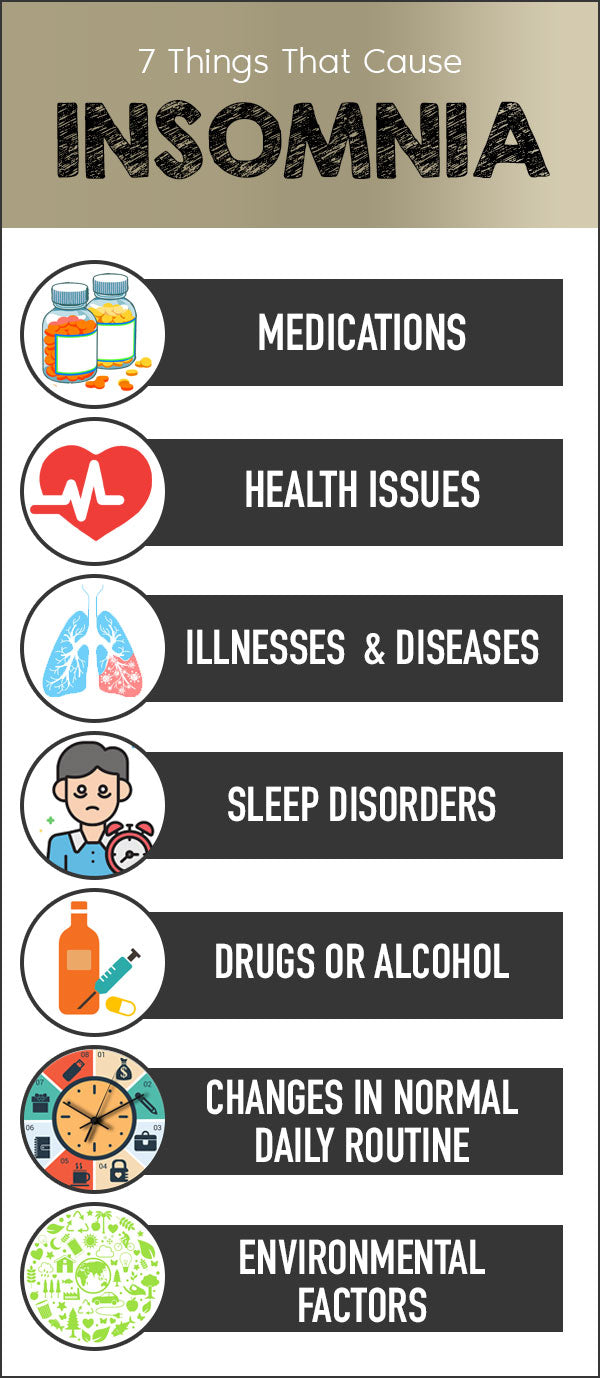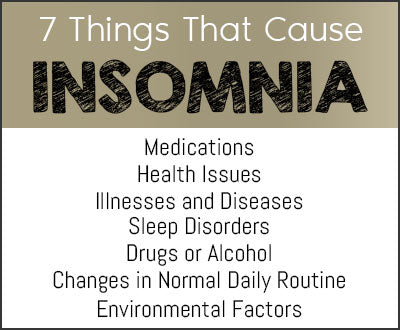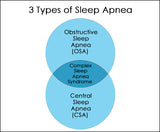What is Insomnia?
Sleep is essential so that we can effectively function normally on a daily basis. Without proper or restful sleep, any number of detrimental health issues can occur, including minor chronic ailments.
Generally, people with insomnia exhibit a number of varying symptoms, including anxiety, drowsiness, and mood swings.
The National Sleep Foundation reported that over 30 percent of the people in the United States struggle with an intermittent or ongoing insomnia sleep disorder.
All combined, that impacts over 30 million people complaining of difficulty staying asleep during the night, waking up early, or even having problems falling asleep at a reasonable time.
In the UK, the statistics are even more alarming, as one in three people complain about having the same sleep issues.
If these symptoms sound familiar to you or a family member, we’ve outlined some important information below to help learn more and answer the question of “what is insomnia?”
Defining Insomnia
There are many people who occasionally have problems going to sleep, staying asleep, or getting enough sleep to feel revived and well rested. Having periodic bouts of insomnia are usually not problematic for most people.
However, when it becomes a nagging recurrence for months, or even years on end, it can have a detrimental impact on our quality of life. No one should endure feelings of being grumpy, drowsy, moody, lethargic, or less than refreshed when they wake up from a night’s sleep.
Although the required amount of sleep varies from one person to the next, seven to nine hours is often highly recommended, and generally considered to be the optimal number of sleep hours per night.

7 Things That Cause Insomnia
-
Medications
Anyone taking medications can be affected by insomnia if it is listed as a side effect. Certain drugs like steroid medication, asthma medicine, beta blockers, and antidepressants are listed as the usual culprits for making it hard to fall asleep.
-
Health Issues
Physical and mental issues can also lead to insomnia. Physical ailments such as chronic pain due to headaches, trauma, or other conditions make it difficult to relax, let alone sleep.
Mental health issues such as depression, anxiety, or stress are common factors as well.
-
Illnesses and Diseases
Illnesses like Parkinson's disease, heart disease, bipolar disorder, post-traumatic stress disorder (PTSD), schizophrenia, Alzheimer’s, and many others all can be problematic for getting a good night’s sleep.
-
Sleep Disorders
Sleep disorders including sleepwalking, sleep apnea, and night terrors almost always impact sleep quality. These are just a few of the more than 60 known sleep disorders, and most of them impact restfulness.
-
Drugs or Alcohol
Excessive alcohol is a major offender, and many people unknowingly consider a glass of wine prior to bed to help them sleep. But in fact, alcohol of kind, in any amount, actually hinders R.E.M. cycles and disturbs restful sleep. In addition, many drugs and caffeine are stimulants that are known to disrupt circadian rhythms.
-
Changes in Normal Daily Routine
Anyone experiencing changes at work or even jet lag may start to exhibit insomnia symptoms. Sometimes these changes promote excessive tiredness in the early stages, but as they progress and continue they cause insomnia symptoms to appear and become more pronounced.
-
Environmental Factors
An uncomfortable bed and pillows can cause tossing and turning during the night. Consequently, so does eating too late, or being in a sleep environment that is either too cold or too hot.
Watching TV, working on a computer, or spending time on a cellphone late at night close to bedtime are all recipes for insomnia. The light emitting from the screens is now known to interrupt sleep patterns.
How to Treat Insomnia
True Insomnia is a sleep disorder that very often requires professional treatment by a sleep specialist. However, many of us simply have trouble falling or staying asleep for several nights in a row, sometimes up to a week or more.
For anyone trying to figure out how to treat non-medical insomnia, it is important that they analyze all aspects of their life. In that regard, closer examination should be focused on the physical, mental, financial, and emotional conditions they face every day. The workplace is very often considered to be a high-stress environment and the common denominator in many insomnia cases.
However, the simplest strategy is to start in the bedroom and branch out from there.
Make Changes in Your Bedroom First
Let’s start with the lighting in the room - it should be turned off, or on the lowest setting for at least an hour before retiring to bed. Try to use small night-lights if preferable, or any number of new light bulbs recommended for promoting sleep.
In addition, invest in thick drapes or blackout curtains to minimize the effect of the morning’s sunlight streaming through the window.
Closely assess whether the bed mattress, sheets, blankets, or pillows are comfortable enough for your personal taste. Do they produce the right temperature, or are they making sleep miserable because they get too hot or cold later in the night? In such cases, changes should be made to swap them out for more comfortable bedding.
For anyone having trouble falling, and staying asleep in a loud city or from unruly neighbors, earplugs might be an inexpensive fix.
Limit the activities performed in the bedroom. Create a strict policy to ban working, eating, exercising, watching television or spending time on any electronics. Stick to it and only use this room in the home for intimacy and sleeping.
It’s also a good practice to flip the bed routinely throughout the year and wash sheets, pillow cases and blankets regularly. It’s generally recommended to wash your sheets every two weeks.
Stick to Regular Sleeping Hours
Selecting a routine time to go to bed is highly subjective, yet extremely beneficial. The body adjusts to this practice more readily when the sleep and wake times are the same for every night of the week, including the weekends.
Try not to take naps during the day. This might be tough for many people who crash in the afternoon, especially after a big lunch. But understand that taking naps, specifically in the middle or late afternoon, can significantly interrupt nighttime rest hours and make it more difficult to fall and stay asleep.
A regular exercise routine is one of most effective, and often overlooked ways of promoting restful sleep. Exercise improves blood flow and naturally occurring chemicals in the brain that both work wonders for helping us all sleep better at night.
Adding daytime exercise will also use up excess energy, release other beneficial hormones at night, and make sleeping much easier. Keep in mind that intense physical activity should not be done within four hours before bedtime.
Don’t Lose Another Night’s Sleep Because of Insomnia
If anyone you know is asking why they can’t sleep, the answer is usually linked to insomnia.
Listed above are simple remedies most people can try to alleviate this common nightly occurrence. However, if the problem persists for more than a couple of weeks, it is always best to seek the professional help of a medical doctor or sleep specialist.
Sometimes, it’s as simple as changing the sheets, pillowcases or flipping the mattress. At other times, it can be something more complex or problematic. Take the time to systematically eliminate the possible causes until proper sleep returns and quality of life improves.
Sleep is essential to our overall daily health and wellness, and without the right amount each night, we can’t function to our highest potential.
Does someone you know have a hard time falling and staying asleep at night? Are they wondering, “what is insomnia?” Leave your questions and comments below.






